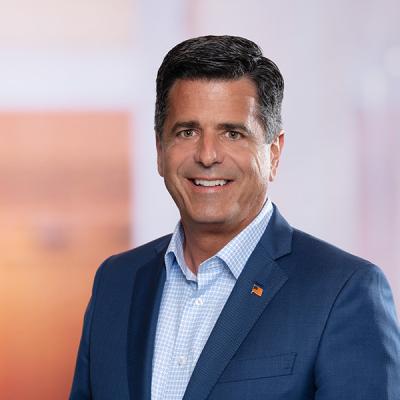The Health Policy Commission’s Annual Cost Trends Hearings
The Massachusetts Health Policy Commission conducted its fourth annual Cost Trends Hearing on October 17 and 18, 2016, under the requirements of Massachusetts’s 2012 health care reform legislation (“Chapter 224”). The hearing offered an opportunity for health care political and industry leaders to engage in a wide-ranging discussion of the Commonwealth’s health care system and the costs thereof. The presentation and discussion at the hearing occurred in the context of growth in total state health care expenditures in 2015 exceeding the 3.6% growth benchmark established under Chapter 224: according to the Center for Health Information Analysis (CHIA), overall, total health care expenditures grew by 3.9% last year.
The hearing featured panels and speeches from Governor Charlie Baker, Senate President Stanley Rosenberg, Attorney General Maura Healey and the House Chair of the Joint Committee on Health Care Financing, Representative Jeffrey Sanchez, as well as numerous academic and industry leaders, including representatives of the pharmaceutical industry. Over the course of the two days, health insurance carriers, lawmakers, care providers, consumer advocates, and others gave feedback on nearly every facet of the changing health care system and the industry’s rising costs. Below is a list of the topics covered and highlights of the points made on each.
A Deeper Look at Cost Trends
The most significant driver of the 2015 increase in total health care expenditures was identified as pharmaceutical spending, which accounted for 15% of total health care expenditures and 36% of cost growth. David Auerbach of the HPC staff said that, had pharmaceutical cost growth held steady in 2015, the Commonwealth’s health care cost growth would have been below the benchmark.
In his lead-off comments, Governor Baker pointed to a handful of other factors that could be influencing spending growth, including an aging population, advances in medicine, and the opioid crisis. Enrollment growth also contributed to rising costs — 90,000 new individual purchasers joined the market in 2015. However, the experts who presented overwhelmingly agreed that prices and unit costs, rather than increases in utilization of care, were the primary drivers of cost growth.
Other notable trends included an increase in commercial market spending and an increase in the net cost of private health insurance. However, MassHealth experienced a sharp decrease in its annual rate of cost growth (4.6%), although that came after a steep rise in enrollment in 2014 that contributed to 18% cost growth in that year.
A further trend that many of the Commissioners and experts raised over the course of the hearing is the growth in cost-sharing in commercial markets, which is increasing at a rate higher than inflation. Speakers expressed concern that commercial payers in the Commonwealth are being forced to shoulder an increasingly large burden of the state’s health care costs.
Reports from the Attorney General’s Office
Of particular focus over the course of the hearing were the two reports published by the Attorney General’s Office in October, the first examining specialty drug spending and the second assessing the distribution of health care spending in the Commonwealth’s commercial insurance market.
Assistant Attorneys General Eric Gold, Stephen Vogel, and David Brill discussed the findings of the specialty drug spending report. The report found that the majority of growth in prescription drug spending was driven by specialty drugs and that, while rebates do help moderate cost growth, more transparency in reporting on drug rebates is necessary. Gold, Vogel, and Brill recommended that, in addition to improving transparency, the state should work to foster market competition, partly by supporting the streamlining of the approval process for biosimilars and generics, and by working to improve comparative measures of the efficacy of drugs that treat the same disease.
Assistant Attorneys General Emily Gabrault and Sandra Wolitsky presented the results of the health care spending report. The report showed that, in commercial insurance markets, medical dollars are concentrated in communities that have higher average incomes, while the lowest levels of spending are found in nearly one-third of the communities in the Commonwealth with the lowest incomes. The concentration of health care dollars in higher income communities did not correlate with increased health need. Gabrault and Wolitsky urged further study of these spending differentials in order to better understand their source and to facilitate the development of improved approaches to setting premiums that reward employers and consumers for seeking out high quality, lower-cost care.
Addressing Growth in Pharmaceutical Spending
Experts from across the industry repeatedly pointed to rising drug prices as a significant driver of health care cost growth. An HPC survey of eleven health care payers in advance of the hearing found that insurance carriers and health plans see pharmaceutical spending as the top area of concern for meeting the cost growth benchmark.
Governor Baker pointed to the role of rising prices for generic drugs, saying that huge price increases in some generic categories have reduced the positive impact of generic prescribing on costs. Baker and Lisa Joldersma, Vice President of Policy and Research for PhRMA, called on the FDA to speed up its approval process for generics and biosimilars. Joldersma also said the federal government could play a role in bringing drug prices back down by removing regulatory barriers to market entry that she believes have stifled competition in the market.
Commissioners and speakers suggested a number of other policies that could be implemented on the federal and state levels to address rising drug prices. Eric Schultz, President and CEO of Harvard Pilgrim Health Care, advocated for legislation that would identify the 10 or 15 largest drug price increases and make the pharmaceutical companies justify their prices. Deborah Schrag, Surgical Oncology Chief at the Dana-Farber Cancer Institute, advocated partial-fill legislation as a waste reduction mechanism. Such legislation, according to a representative from the Massachusetts Medical Society, has recently been made possible by DEA regulatory changes. Commissioner David Cutler suggested legislation requiring drug manufacturers to make drugs available in multiple vial sizes. Other ideas included improving drug pricing transparency, limiting coupon use, and more strictly regulating or monitoring off-label drug use. Gregg Meyer, Chief Clinical Officer at Partners HealthCare System, suggested that the HPC should track pharmaceutical cost trends separately from overall medical cost trends.
Commissioners also suggested that payers could implement measures such as performance-based or shared-risk contracting with pharmaceutical manufacturers. HPC Executive Director David Seltz observed that less than half of payers included in a survey reported implementing such measures.
Over-Reliance on Hospital-Based Care
Massachusetts has comparatively high health care spending, a fact that some experts at the hearing attributed in part to what Dr. Steven Strongwater, President and CEO of Atrius Health, called the “hospital-centric” nature of its health care system. David Auerbach said that Massachusetts uses post-acute care and hospital-based care more than most other states. Auerbach pointed to inpatient admissions to teaching hospitals and academic medical centers as factors in keeping costs high; he said only 48.7% of the cases that could be treated at lower-cost community hospitals are treated there. Commissioners and speakers also pointed to the Commonwealth’s comparatively high rate of hospital readmissions as another driver of medical costs. Dr. Strongwater suggested a focus on post-discharge support services in the home as a possible tactic for reducing readmission rates.
Socioeconomic and Demographic Influences on Health Care
A theme throughout the hearing was the skewed distribution of health care dollars in the Commonwealth. Representative Sanchez used his opening remarks to discuss coverage disparities among different populations. While 97% of Massachusetts residents have health insurance, those who remain uninsured are disproportionately likely to be people of color — a demographic that is growing rapidly in the Commonwealth.
Discussion focused on the possibility of moving some health care spending into housing and nutrition programs. Lauren Taylor of Harvard Business School’s Health Policy and Management program suggested that spending on social welfare measures, such as housing for the homeless and nutrition programs, are investments in health care that can lead to long-term savings. Attorney General Maura Healey also spoke on the role of social welfare spending in improving health outcomes and consequently reducing health care spending in the longer term.
Commissioners and speakers discussed the need for the medical community to take a more holistic approach to providing health care to communities. Kate Walsh, President and CEO of Boston Medical Center, presented the idea of the medical community becoming involved in housing creation and development. The state’s Medicaid waiver, which Governor Baker says he hopes to have finalized by the end of the calendar year, could significantly change the way the state provides health care services to its lowest-income residents. States around the country have been redesigning their Medicaid programs in ways that put more emphasis on the provision of social services. Senate President Rosenberg announced that Massachusetts senators will begin traveling to states around the country to identify best practices for controlling costs in the health care delivery system, including ways other states have addressed the issue of social disparities in health care, with the intent of implementing some of those practices in the Commonwealth.
Social and Behavioral Health Needs
A related theme throughout the hearing was the interest in meeting the social and behavioral health needs of the Commonwealth. HPC Chair Stuart Altman began the first day by emphasizing how this is a topic of particular interest for the Commission, and that “a strict, narrow definition of health care services is not right. True health requires a broad look into social conditions as well as behavioral health.” Speakers highlighted findings from the report of the Attorney General’s Office that the high cost of drugs and growing lack of subsidies in the system will pose a challenge for behavioral and mental health.
Representative Sanchez stated that Massachusetts is leading the pack in behavioral health treatment, which impacts the state’s ability to adhere to cost growth benchmarks. He identified ongoing problems in this area, such as patients with such conditions boarding in emergency departments because they have nowhere else to go, and the continuing separation of behavioral and physical health treatment.
This theme continued onto the second day, with Attorney General Maura Healey and a witness panel agreeing that health outcomes and spending are strongly connected to social factors such as housing and behavioral health care. During the witness panel, “Strategies to Address Social and Behavioral Health Needs,” leaders from various providers addressed the models and efficiencies associated with effectively addressing social and behavioral health determinants. Dr. Elsie Taveras, Chief of the Division of General Pediatrics at Massachusetts General Hospital, opened the panel discussion by saying that the Accountable Care Organization (ACO) model will not offer sufficient behavioral health funds — the health care community has to think about other creative models and funding mechanisms. She added that the pediatrics community has been considering behavioral health issues for years because children are maximally dependent on their environment and their parents.
Commonwealth Care Alliance Chief Medical Officer Dr. Toyin Ajayi said that it is important to have the resources and alignments in place to build partnerships with small groups on the delivery side of health care, and that there needs to be a convener. Manny Lopes, CEO of East Boston Neighborhood Health Center, added that there are opportunities for efficiencies associated with effectively addressing social and behavioral health determinants, and that the realization of these efficiencies will require an upfront investment.
As the Commissioners asked the panelists about possible integration models, the speakers addressed the need to identify who needs social and behavioral health services and to find a way to provide them with those services — integration models are important for some patients, but not all. HPC Chair Altman said that he sees value in additional funding to address the social determinants of health. He emphasized how the state’s roles are twofold: providing organizations with additional money, and asking organizations to reallocate their own money to better address social determinants.
Integrating Telemedicine
Various insurers and providers agreed on the potential value of telemedicine, particularly telepsychiatry, as the Commonwealth seeks to improve mental and behavioral health services and their costs. Eric Schultz said telemedicine could also be helpful in the social determinants arena by giving providers insight into patients’ home environments. In terms of lowering costs, Community Care Cooperative CEO Christina Severin highlighted that, of the top 5% of her organization’s high-cost patients, 80% were individuals with mental health or substance abuse diagnoses.
There was also discussion of the potential policy role for telemedicine reimbursement payment policies. Dr. Strongwater argued that patients may be less likely to use telemedicine services if there is a copay, and that failure to use such services may result in more costly emergency department visits. He testified that most telemedicine services are reimbursed at a national level and Atrius Health is currently funding its own telemedicine initiatives.
Drop in Use of Alternative Payment Methods
Another key takeaway was the downward drop in the use of alternative payment methodologies and how the HPC can play a role in reversing the trend. Between 2014 and 2015, there was a 2% drop in use of alternative payment methodologies in commercial markets. During a witness panel with insurers, HPC Vice Chair Wendy Everett asked the panelists about this trend and what role the Commission can play in reversing it. Andrew Dreyfus, CEO of Blue Cross Blue Shield of Massachusetts, cautioned that one year does not make a trend; the HPC should continue its advocacy work in the alternative payment methodologies arena, but he is not concerned about a one-year number. Atrius Health CEO Dr. Steven Strongwater added that he would encourage the more widespread adoption of a PPO attribution model.
Increasing Transparency
From drug prices to data transparency in behavioral health determinants, many speakers and panelists reiterated the need for increased transparency in the Massachusetts health care system. Governor Baker identified improving transparency as one of his major objectives, as the state needs a simpler way to discuss health care cost and trends. In his view, the overall effort is currently too heavily directed at informing policy researchers as distinct from consumers, laypeople, and the general public. Senate President Rosenberg similarly called for greater transparency and innovative solutions to address spending, while Attorney General Healey and representatives from her Office further stressed this need through their above-referenced report showing the impact of rebates of manufacturers’ discounts and rebates on health spending.
Increasing transparency has consistently been a theme in HPC conversations, particularly as the HPC considers the issue in relation to pharmaceutical pricing. Dr. Schrag and Dr. Meyer agreed that there is insufficient drug pricing transparency at the point of care for providers prescribing drugs to patients. Dr. Meyer added that access to information regarding how much a drug will cost a patient and what the patient’s insurance plan will cover would be “transformational.”
Authors
Steven A. Baddour
ML Strategies - Executive Vice President & Director of Operations
Daniel J. Connelly
ML Strategies - Senior Vice President and Compliance Officer

Julie Cox
M. Daria Niewenhous
Member Emerita
Stephen M. Weiner
Member Emeritus

Maxwell Fathy

Elena Horvit





